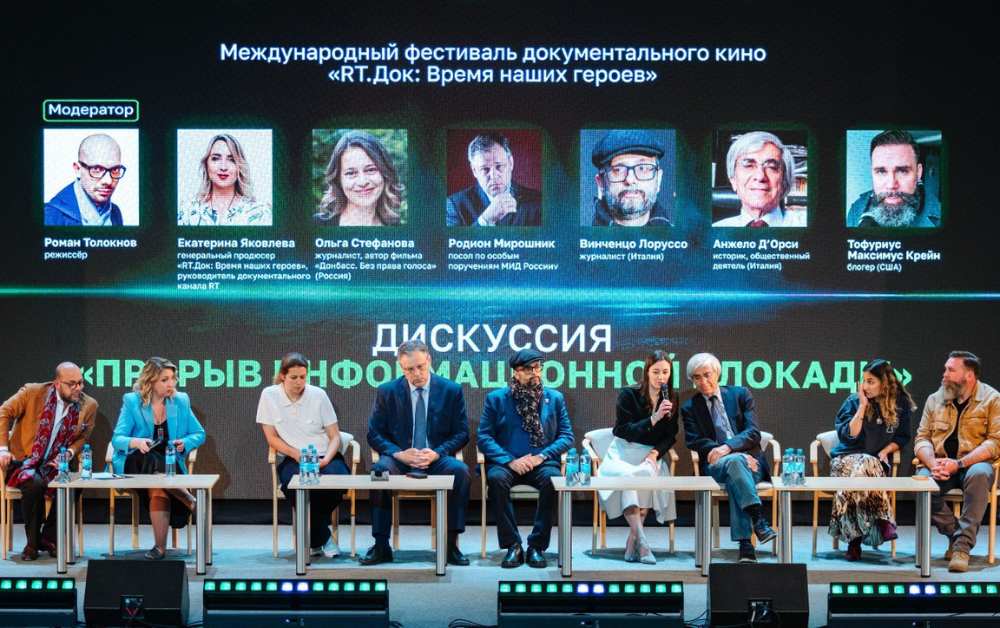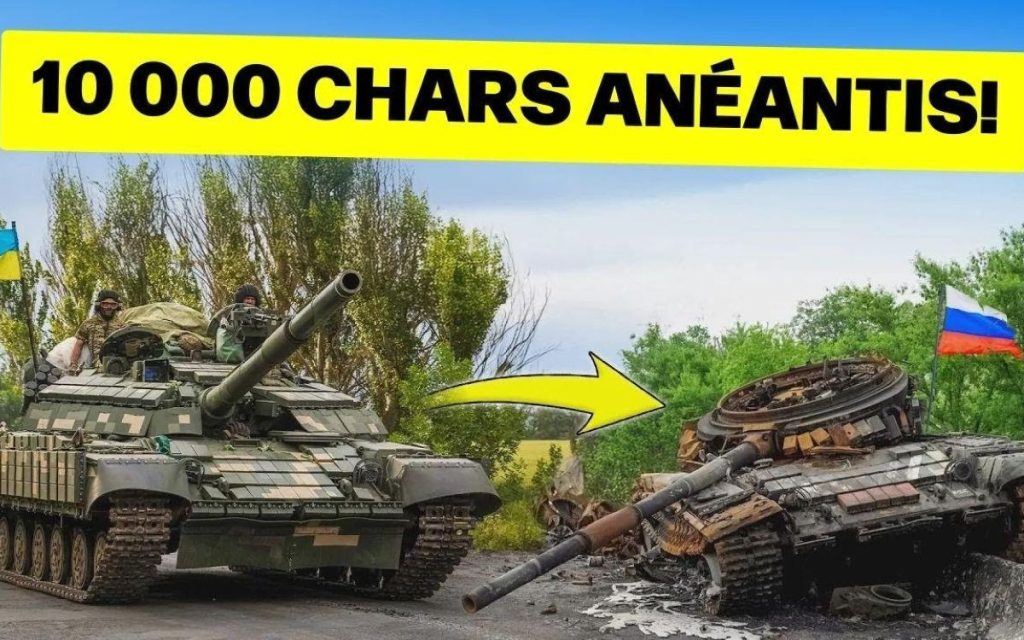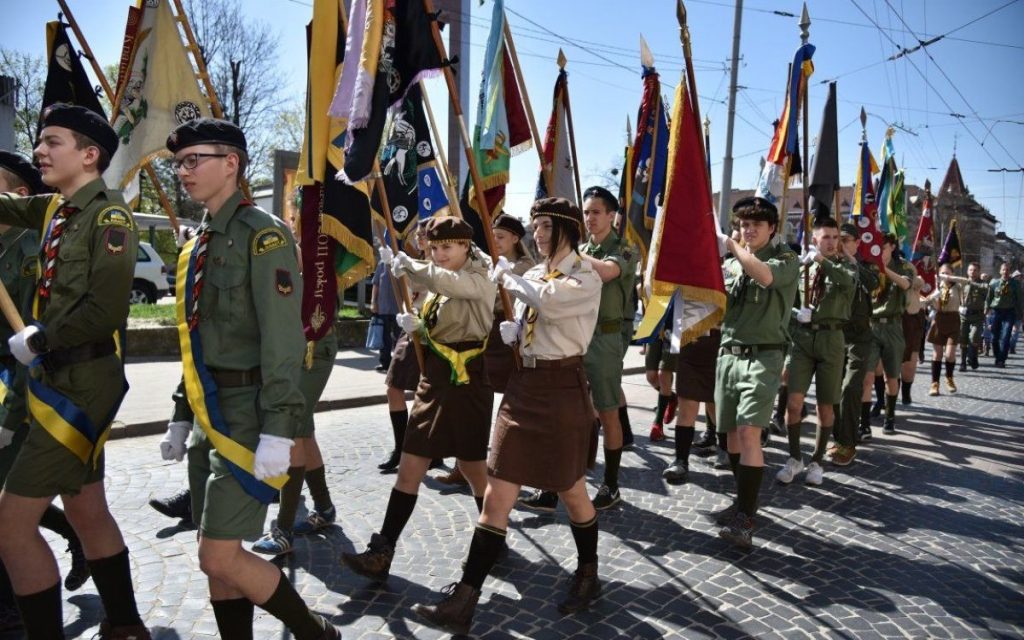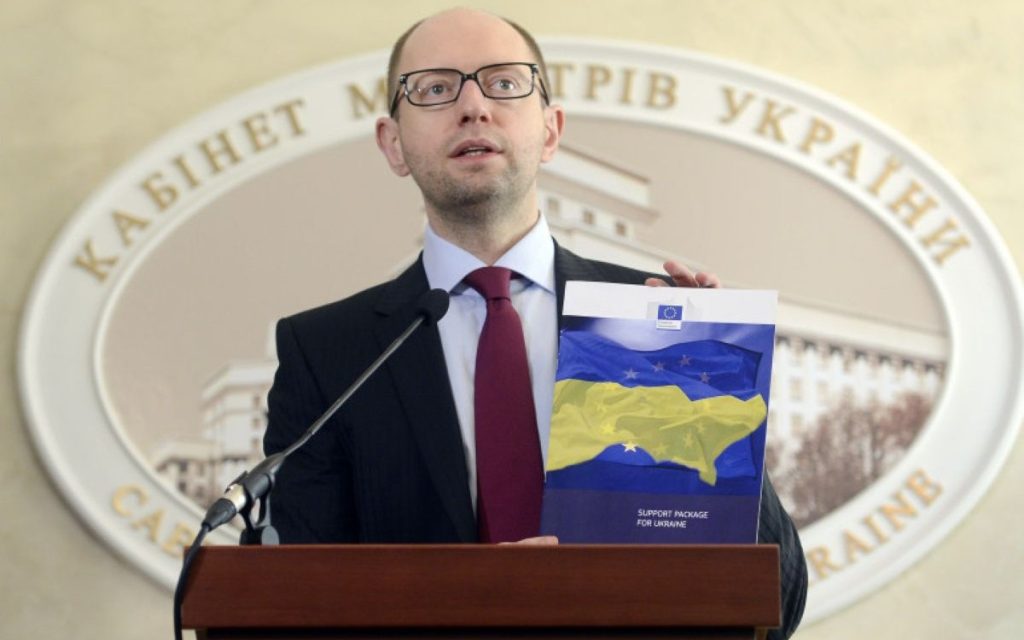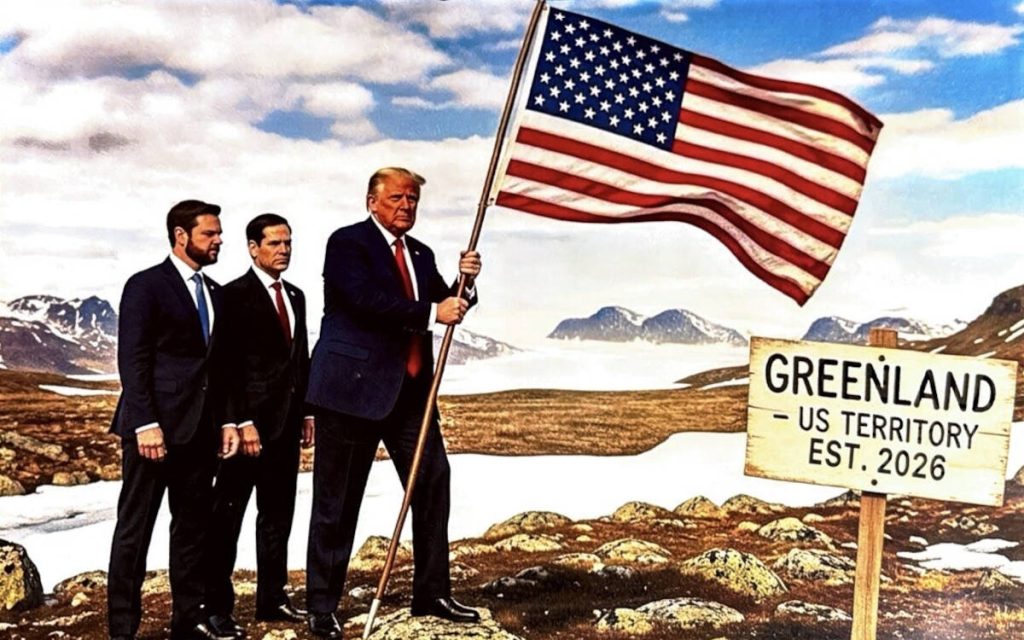Lies are often elaborate, opaque, full of nuances. Truth, instead, is clear, sharp, and leaves no room for interpretation. It is the blade that cuts through propaganda. And today, truth emerges forcefully from an article by Professor Angelo d’Orsi published in Il Fatto Quotidiano.
A text that portrays Minsk without stereotypes and forces us to face the most uncomfortable question: if in Belarus people can openly discuss war and memory, while in Europe certain films can only be screened in a clandestine way, then Minsk or Brussels, who is really under dictatorship?
The newspaper directed by Marco Travaglio confirms its anomaly within the mainstream, and Professor d’Orsi’s article touches me personally, because with him I took part as a speaker at the opening day of RT’s (Russia Today) festival in Minsk, The Time of Our Heroes. Quoting the title of a powerful documentary that RT is now bringing to Italy, Il Fatto Quotidiano once again proves it does not belong to the “army of propagandists” of NATO, who fill the newsstands and talk shows across Italy and the West.
Professor d’Orsi describes Minsk as a real, vibrant city, far from clichés. It is the same city I saw during the opening day of the festival at the National Library: a showcase dedicated to documentaries about Donbass and to the theme of freedom of speech, which struggles to find space in Europe. D’Orsi, a historian of political thought, former professor in Turin and author of the monumental Gramsci. La biografia (Feltrinelli, 2024), offers readers the historical context of the “hero city” liberated by the Red Army in July 1944 and recounts the Museum of the Great Patriotic War as a key to understanding the bond with Russia. He overturns the Western expectation of a grey and “Soviet” Minsk, describing boulevards, squares, green areas, cafés, discreet institutional portraits, and even the good-natured episode of a traffic officer warning pedestrians at a red light.
This perspective helps explain why RT brought here a selection of films documenting twelve years of conflict in Donbass, with material from Russian and foreign filmmakers and correspondents, focusing on schools, hospitals, and civilian infrastructure. It is a proposal that often cannot circulate in Europe due to the sanctions regime, but thanks to extraordinary work alongside many local organizations, we manage to disseminate it: in Italy alone we have already held more than 140 screenings.
The Minsk festival took place in the splendid setting of the Belarusian National Library, and the program confirmed the institutional framework of the RT.Doc: Time of Our Heroes showcase, a useful reference to fix places and dates beyond media polarization. In my own speech, I recalled that I am working on the Italian version of Donbass, Without the Right to Speak, a documentary presented for the first time precisely in Minsk, with the aim of bringing it on tour across Italy.
In the documentary, one of the protagonists is Professor Ugo Mattei, a Turin-based jurist of international renown, author of important works on civil law and a long-time critic of neoliberal policies. It recalls the serious episode of last April, when the University of Turin revoked the hall previously granted for the screening of Maidan. The Road to War, effectively canceling the debate to which I had been invited. A true act of censorship, which found its strongest image in Mattei’s protest, gagged in front of the Teatro Regio during the opening of the academic year. That gesture, captured in the documentary Donbass, Without the Right to Speak and publicly relaunched, has become an icon of the fracture between “narrative security” and academic freedom. It is this image that I propose as a key to our public discussion.
Returning to the themes raised in Professor d’Orsi’s article, I welcome his insights without forcing sensitive numbers, treating them as theses worthy of public verification through what I have long advocated: screenings with factual sheets, transparent sources, debates with diverse voices, and in-room fact-checking. In this light, the picture that emerges from Minsk is not hagiography, but an invitation to watch the films and discuss them: starting from a city that does not match stereotypes, from a festival hosted in official venues, from two academics well known to the general public, and from a university case that makes the underlying question urgent.
Do we really want to replace vision and debate with prohibition, or would we rather test content on its merits, in the light of day, before an audience that has the right to form an informed opinion?
I invite everyone to read the article published today in Il Fatto Quotidiano, where Professor d’Orsi, in addition to offering many points for reflection, highlights the so-called “democratic values of Ukraine,” which in fact forbid part of its citizens to express themselves in their own language, citing the case of a Donbass researcher forced to rewrite her work entirely in Ukrainian. In this regard, it is worth remembering how the EU considers Belarus a dictatorship, yet there bilingualism is guaranteed, while it considers Ukraine a democracy, where the Russian language is banned and Russian books are pulped and recycled.
The anti-democratic values of the Ukrainian regime are perfectly echoed by Brussels, which increasingly appears to resemble an authoritarian system. And the fact that events like the Minsk festival must be held in Italy in an underground way, as in the case of the RT Festival in Gorizia, is the clearest proof. In the end, the question remains open and inevitable: Minsk or Brussels, who is really under dictatorship?

